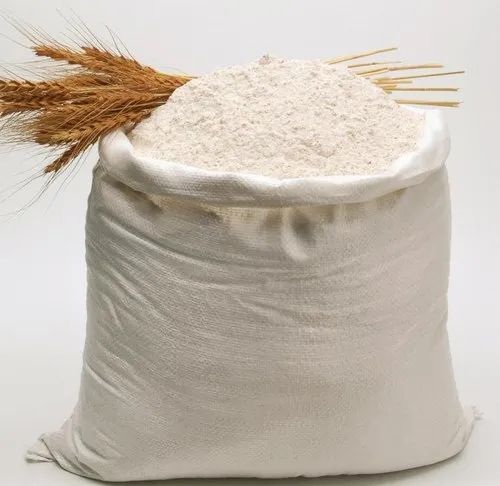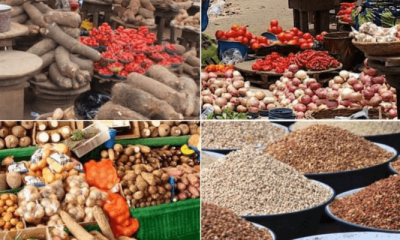Business
Bread: Price Of Flour Per 50Kg Bag In Nigeria

The price of flour, a staple ingredient in numerous Nigerian households and a cornerstone for several businesses in the bakery and confectionery sectors, has witnessed fluctuations, currently ranging between N60,000 to N65,000 for a 50kg bag.
This variation in prices is attributed to a complex interplay of factors including inflation, government policies, and prevailing market forces.
Notably, the Nigerian flour market is dominated by key players such as Dangote Flour Mills, Honeywell Flour Mills, and Flour Mills of Nigeria.
These major brands offer their products at different price points, influenced by quality, packaging, distribution networks, and other factors.
The cost of production plays a significant role in determining the final retail price of flour in Nigeria.
Notably, the price of wheat, the primary raw material in flour production, significantly impacts the cost.
The global market prices of wheat, coupled with domestic production challenges, often translate to variations in flour prices.
The fluctuating prices of flour have significant implications for the food industry, particularly for bakeries, restaurants, and other businesses reliant on flour as a primary ingredient.
The price of flour in Nigeria, like in many other countries, is influenced by a complex interplay of domestic and international factors.
These factors can fluctuate, causing variations in the cost of flour per kilogram.
Here are some of the key factors affecting the price of flour in Nigeria:
1. Global Wheat Prices
Nigeria imports a significant portion of its wheat, the primary raw material for flour production. Therefore, global wheat prices have a direct impact on the cost of flour in Nigeria.
Factors such as climate conditions in major wheat-producing countries, global demand and supply dynamics, and geopolitical tensions can influence these prices.
2. Exchange Rate Fluctuations
The Nigerian Naira’s exchange rate against foreign currencies, particularly the US dollar, affects the cost of importing wheat. Depreciation of the Naira leads to higher import costs, which flour millers pass on to consumers through increased flour prices.
3. Transportation And Logistics Costs
The cost of transporting wheat from ports to milling factories and then distributing flour to various parts of the country can significantly impact the price of flour. Fuel price fluctuations, poor road conditions, and logistical challenges can increase these costs.
4. Government Policies And Tariffs
Government policies on wheat importation, such as import duties and tariffs, can affect the overall cost of importing wheat. Additionally, policies aimed at encouraging local wheat production, such as subsidies or incentives for local farmers, can also influence flour prices.
5. Local Wheat Production
The level of local wheat production in Nigeria affects flour prices. Increased local production can reduce reliance on imports, potentially lowering flour prices.
However, factors such as unfavorable farming conditions, inadequate agricultural inputs, and security challenges in farming regions can hinder local wheat production.
6. Market Competition
The level of competition among flour millers in Nigeria can impact flour prices. A competitive market might drive prices down, whereas a monopolistic or oligopolistic market structure could lead to higher prices.
7. Consumer Demand
The demand for flour and flour-based products influences its price. Higher demand, driven by population growth and changing dietary preferences, can push prices up, especially if supply constraints exist.
8. Inflation
General inflationary trends in Nigeria, affecting the cost of inputs like energy, labour, and machinery, can contribute to the rising cost of flour production. This inflationary pressure is often passed on to the consumer.










